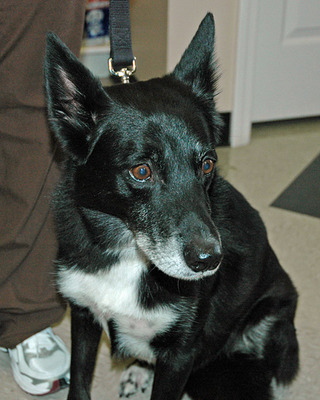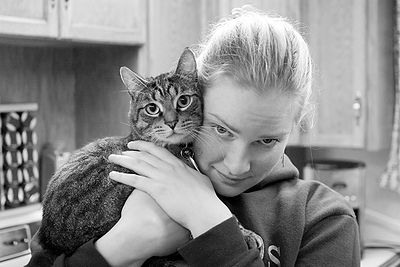
Some dogs suffer from separation anxiety when left alone. It’s not clear why this happens although there can be contributing factors – if you’ve spent a period of time constantly with your dog, after your dog has spent time in a shelter or kennel, if your dog is rarely alone or any changes in your dog’s routine.
If your dog follows you about the house, reacts to your leaving with excitement or anxiety or frantically greets you when you return, these are clues that point to separation anxiety.
When left alone, anxious dogs often urinate or defecate although housetrained, become destructive, chew inappropriate things, bark, howl or whine for long periods disturbing neighbors.
It is important to understand that dogs behave this way because they are in a panic and extremely stressed. Punishing your dog for these behaviors only increases the stress level.
Here are some tips to help your dog overcome separation anxiety.
- Give your dog an article of your clothing that has your smell on it.
- Leave a radio or TV playing each time you leave.
- Give your dog a favorite toy, perhaps one that you can place treats in. This will occupy your dog as he tries to remove the treats. Just be sure the treats and the toys don’t pose a choking or other hazard to your dog.
You can practice leaving your dog for a few minutes at a time. Put your coat on, get your keys, step outside for a moment and come back in, increasing the time outside very gradually. If your dog experiences stress at any time, start again shortening the period you are outside the door. This method takes a while, so try not to rush it. Your dog will eventually understand that you are not leaving for good, but will return.
If you have time constraints during the training period and you must leave, consider asking a friend to dog-sit. If your dog gets along with other dogs, perhaps you can find a doggie daycare facility nearby.
It’s important to be patient and never punish your dog.
If the problem persists, you might want to consult with an animal behaviorist or your vet. There are instances when medication might help. Talk to your vet about this alternative.
Note: Sometimes your dog’s actions may not be related to separation anxiety, but can be attributed to boredom or an excess of energy. If possible, before leaving your dog, make sure s/he has had enough exercise and mental stimulation.



